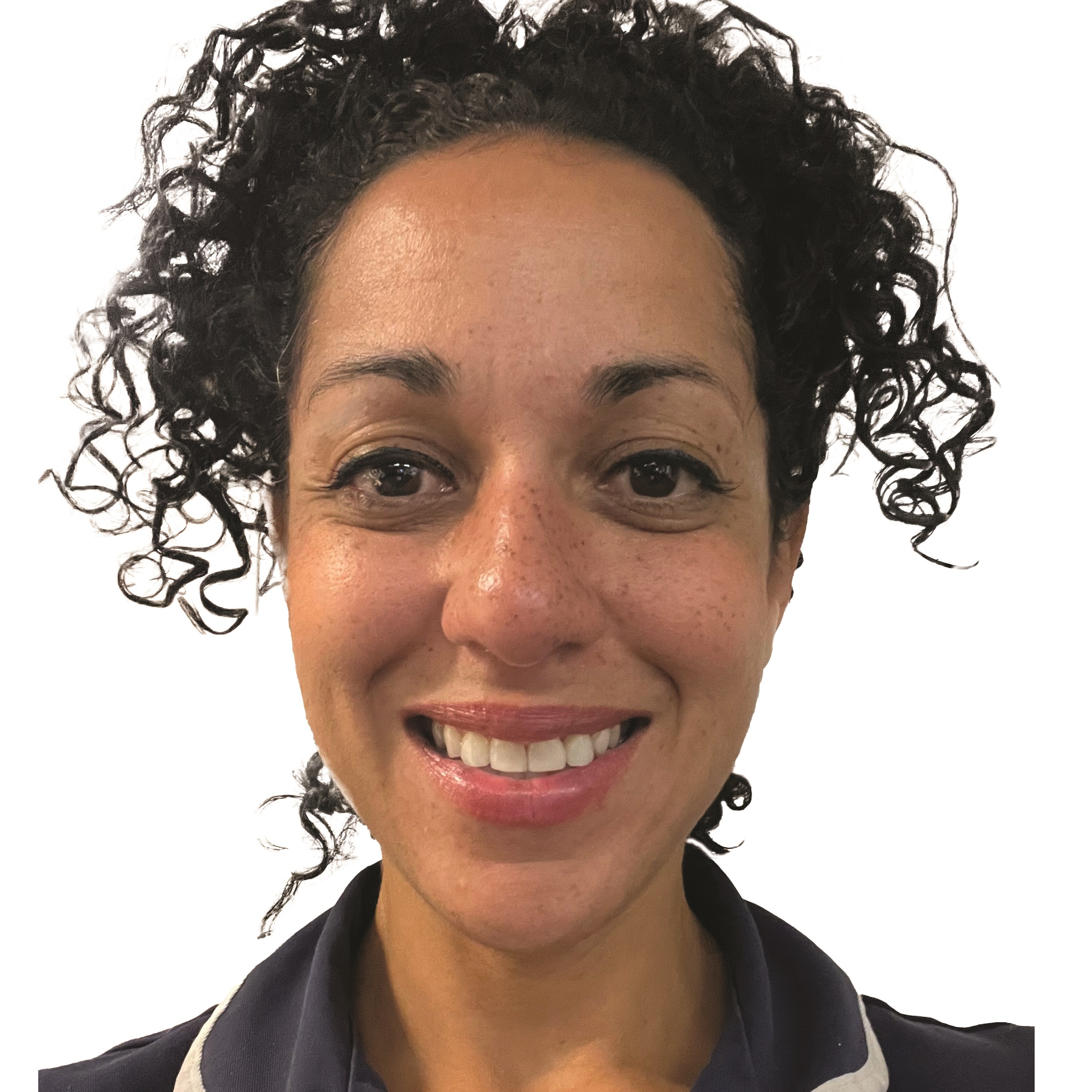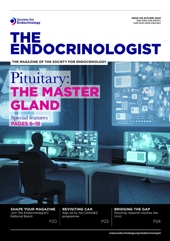Fiona Cains tells us how she came to be a Pituitary Surgery Clinical Nurse Specialist, the challenges and rewards of the role, and what her job means for the patients she supports and their families.
MY JOURNEY SO FAR
My interest in the endocrine system began when I was a newly qualified staff nurse working on a diabetes and endocrinology ward. I looked after a patient who had type 1 diabetes and Addison’s disease. I had no idea what Addison’s disease was, so tasked myself with learning more about it, so that I could provide the best care for my patient. From then on, I was fascinated by the complexity and importance of hormones and actively pursued a role in endocrinology.
I subsequently joined the Christie Hospital in Manchester as a staff nurse on the Endocrine Unit and, in time, progressed to sister. I was privileged to work with and learn about endocrinology from the renowned and supportive endocrine team.
In my role, I carried out endocrine dynamic function tests, nurse-led clinics, visual fields tests and DXA (dual energy X-ray absorptiometry) scanning. I completed the paediatric endocrinology module at Keele University and the Royal Osteoporosis Society training scheme for bone densitometry. I was involved in the care of patients with a variety of endocrine conditions, including pituitary tumours and endocrine late effects of cancer treatments. This is where my interest in the pituitary gland really developed. A large part of my role was patient education and support. I regularly attended the regional pituitary multidisciplinary team (MDT) and neuroendocrine MDT meetings.
BECOMING A PITUITARY SURGERY SPECIALIST NURSE
In 2018, I joined the neurosurgery team at the Manchester Centre for Clinical Neurosciences in the newly created role of Pituitary Surgery Specialist Nurse. Manchester has one of the largest centres for pituitary surgery in the UK. The service manages the care of patients diagnosed with functioning and non-functioning pituitary neuroendocrine tumours, craniopharyngiomas, Rathke’s cleft cysts, arachnoid cysts, and inflammatory and infective conditions.
My role is both supportive and clinical. I am involved in the care of patients attending the neurosurgery and joint neurosurgery–endocrine clinics, and provide information and support for patients and their families. Not all patients will proceed to surgery. Some patients are kept under radiological and endocrine surveillance. Some may have had previous surgery and are referred to oncology for radiotherapy.
Preoperative consultations with the specialist nurse are offered to all patients. The consultation focuses on answering patient’s questions about their diagnosis, surgery and recovery. The majority of pituitary surgery is performed via a transsphenoidal approach, and in some cases a craniotomy may be required. Some patients may need shunts and other neurosurgical interventions.
The psychological impact of living with a pituitary condition and having surgery and other treatments can be very challenging for patients and their families. Establishing a good nurse–patient relationship prior to surgery is beneficial in many ways. It builds continuity and patients are then more likely to seek support from me. Patients may need ongoing psychological support and input from a neuropsychologist and I can facilitate this.
The complexity of pituitary tumours and other pituitary disorders means that those patients who have surgery need a high level of input from the specialist nurse, and joint care between the neurosurgery and endocrine teams, during the pre- and postoperative phases. The specialist nurse can identify issues or complications early, and initiate timely investigations and interventions. This can significantly improve patient outcomes.
I am involved in the clinical management of postoperative inpatients, patients readmitted with complications such as syndrome of inappropriate antidiuretic hormone secretion (SIADH) and new acute patients presenting with apoplexy or a newly diagnosed pituitary condition. I review patients on a daily basis on the neurosurgery wards and critical care. The issues that I manage and give advice on include AVP deficiency (diabetes insipidus), SIADH and steroid management.

Figure. Management of patients with pituitary conditions involves a team of healthcare professionals.
MAKING A DIFFERENCE
There has been a reduction in the number of avoidable hospital readmissions since my appointment, and a reduction in postoperative complications. The length of inpatient hospital admissions has reduced. Prior to my appointment, pituitary patients requiring review would be assessed by a neurosurgery registrar in a neurosurgery ward clinic. Patients are now reviewed in the nurse-led clinic. The benefits of this include the easy access patients have to the clinic, continuity of care, the provision of expert clinical care, and a reduction in workload for the neurosurgery consultants and registrars.
CHALLENGES
The COVID-19 pandemic initially halted transsphenoidal pituitary surgery. Supporting patients who were waiting for surgery was challenging. Thankfully, we are performing surgery at our prepandemic level now. The main challenge for me has been transitioning from endocrine nurse to neurosurgery nurse. I have had excellent support and mentoring from the consultant neurosurgeons and the skull base specialist nurses. Other challenges are that, as a lone worker, workload management and personal development can be difficult. Current nursing shortages can mean that I need to spend more time on the wards managing patients’ clinical care and educating new staff.
WHAT I FIND REWARDING
The most rewarding aspects of my role are positive patient outcomes after surgery: visual improvement for patients, and biochemical cure achievement for patients with functioning tumours. I particularly enjoy supporting patients with complex needs.
As a member of the Pituitary Foundation Medical Committee, I am passionate about sharing my knowledge of the pituitary gland and pituitary disorders with patients and healthcare professionals. My role as a member of the pituitary team provides a vital link between neurosurgery and endocrinology. Because of my previous endocrine nursing experience, I have strong links within endocrinology. These links enable good communication between healthcare professionals, which benefits the patient. Good communication and strong professional links are essential for the delivery of high quality patient care and the development of pituitary services.
I have always enjoyed being involved in delivering collaborative patient-centred care, and being part of a large specialist team, delivering expert care with colleagues who share my desire to provide the best care for pituitary patients.
FIONA CAINS
Pituitary Surgery Clinical Nurse Specialist, Manchester Centre for Clinical Neurosciences, Salford Royal Hospital, Northern Care Alliance








